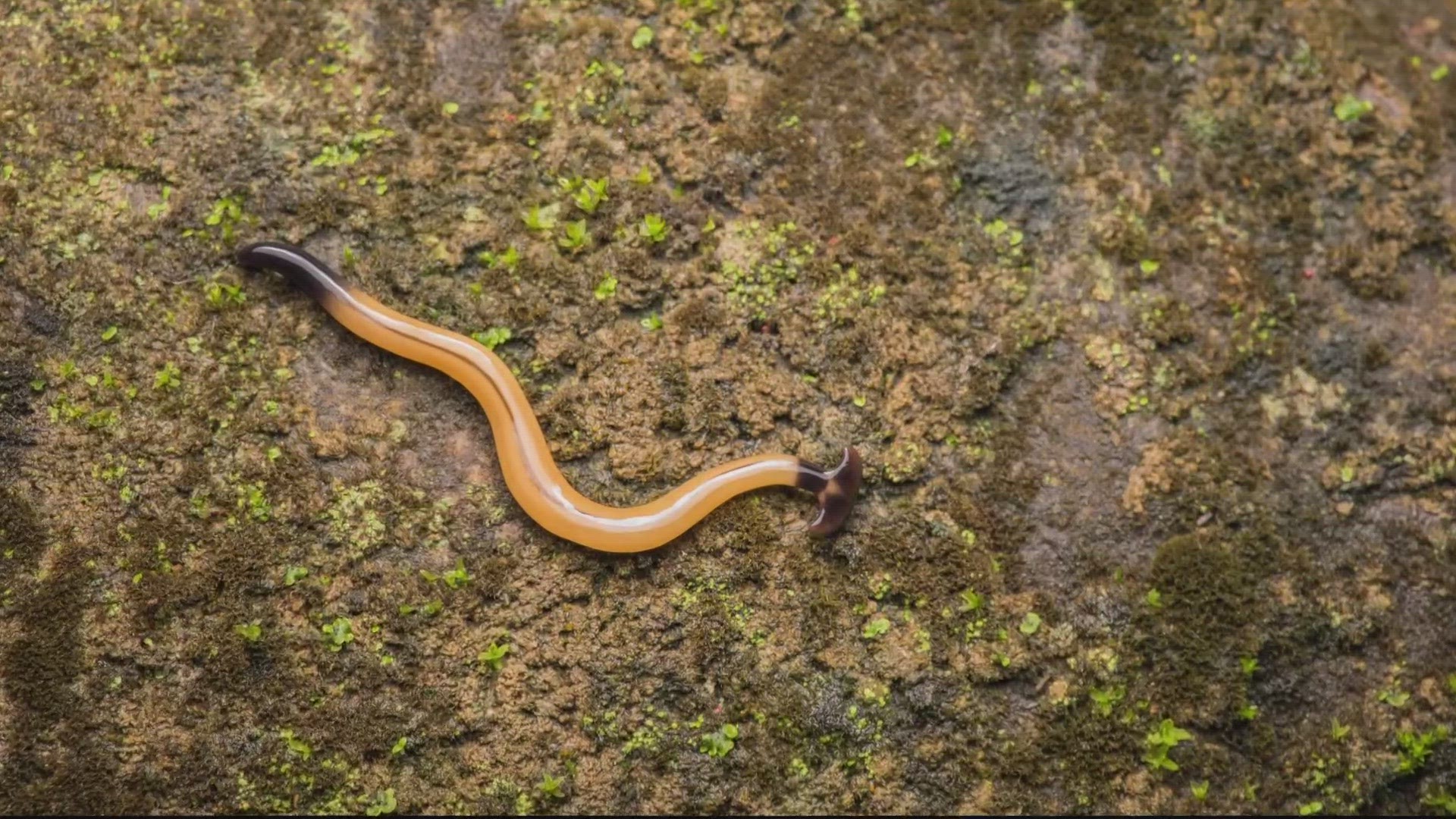MILLEDGEVILLE, Ga. — Landscape work gets you down in the dirt.
“We enjoy it. We love getting our hands dirty, and getting in there and handling business,” Cory Little said.
Little, owner of Mid-Georgia Landscape Solutions, says they share the workspace.
“Stuff as small as ants, to snakes, and a little bit of everything,” he said.
However, he says there's one odd creepy crawly he hadn't seen until last year.
“They have that wide head on them,” Little said. “They’re very noticeable in comparison to the other worms in the area."
Bruce Snyder, Georgia College’s Assistant Professor of Ecology says you're more likely to notice hammerhead worms nowadays.
It might be because of how they look.
“They don't have segments. Black spots by the head and they have a couple of stripes going down the body,” Snyder said.
Gooey and sticky with a hammer-shaped head, but their looks aren't the strangest thing about them.
“I try not to touch them because I don’t want to risk getting that toxin on me,” he said.
Hammer-head worms secrete a toxin they use to feed on slugs or even other earthworms.
That toxin could irritate your skin too if you handle them.
“It's not going to kill you, but it's just generally safer to not touch them if you don't have to,” Snyder said.
On top of that, they’re hard to get rid of.
“They’re also able to reproduce just by dividing. Cutting them apart is just going to get you more worms,” Snyder said.
So, does that make this invasive species an environmental problem?
Well, Snyder says it could be.
“We know that they're spreading more,” Snyder said. “It's very easy for us to spread them when we're moving soil and mulch and that kind of thing. They're certainly eating native earthworms. It's kind of hard for us to tell, but there's the potential for the removal of the existing soil fauna."
That slightly concerns landscapers who want to keep the lawns they care for.
“The more that we start to see these, the more damage that they're doing to earthworms and things that really do provide nutrients to the ground and soil that we need,” Little said.
Snyder says if you’d like to kill them, it's best to freeze them or heat them up.
He recommends that you don't touch them with your bare hands if you don't have to or let pets near them.

